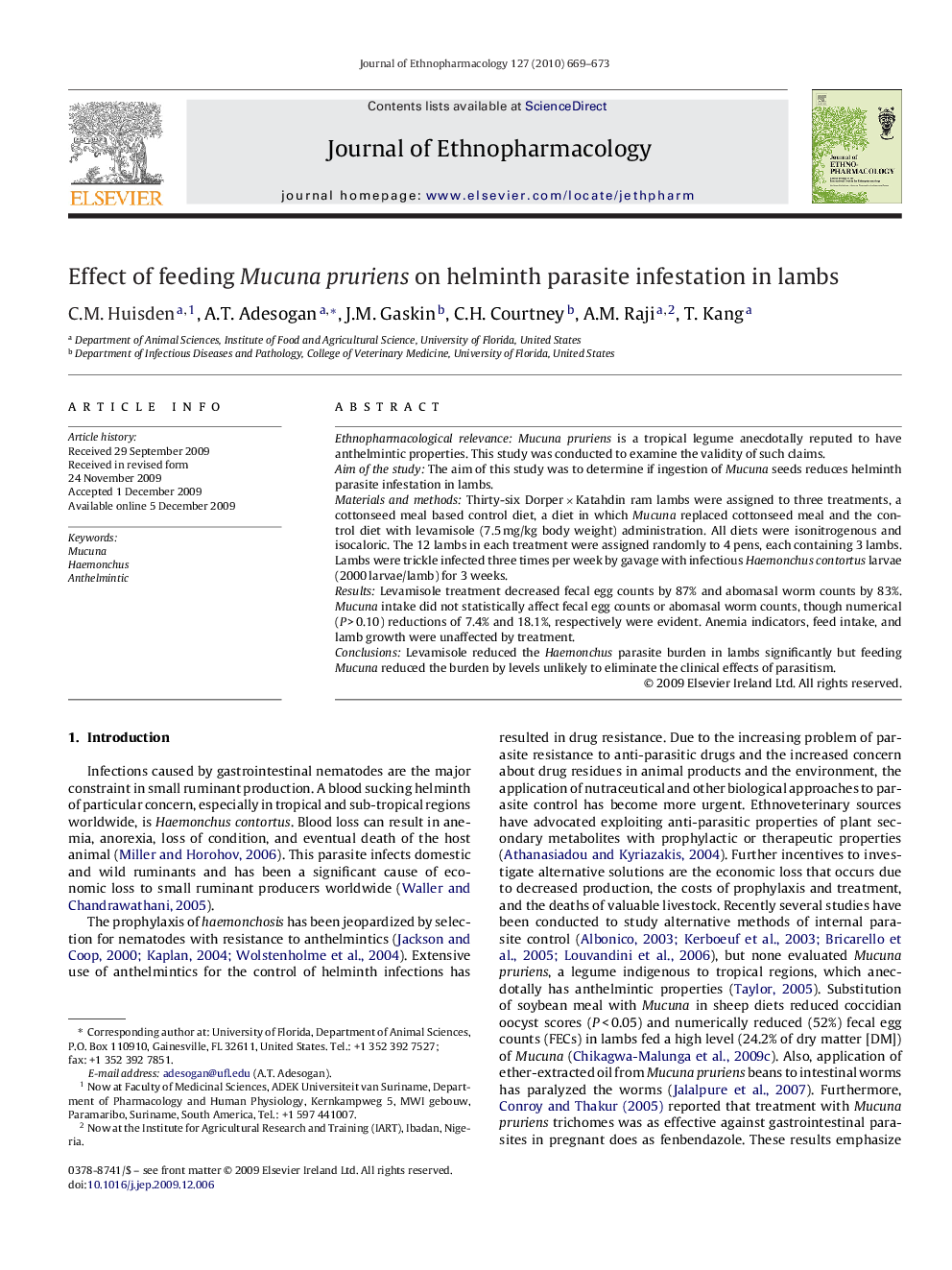| Article ID | Journal | Published Year | Pages | File Type |
|---|---|---|---|---|
| 2546540 | Journal of Ethnopharmacology | 2010 | 5 Pages |
Ethnopharmacological relevanceMucuna pruriens is a tropical legume anecdotally reputed to have anthelmintic properties. This study was conducted to examine the validity of such claims.Aim of the studyThe aim of this study was to determine if ingestion of Mucuna seeds reduces helminth parasite infestation in lambs.Materials and methodsThirty-six Dorper × Katahdin ram lambs were assigned to three treatments, a cottonseed meal based control diet, a diet in which Mucuna replaced cottonseed meal and the control diet with levamisole (7.5 mg/kg body weight) administration. All diets were isonitrogenous and isocaloric. The 12 lambs in each treatment were assigned randomly to 4 pens, each containing 3 lambs. Lambs were trickle infected three times per week by gavage with infectious Haemonchus contortus larvae (2000 larvae/lamb) for 3 weeks.ResultsLevamisole treatment decreased fecal egg counts by 87% and abomasal worm counts by 83%. Mucuna intake did not statistically affect fecal egg counts or abomasal worm counts, though numerical (P > 0.10) reductions of 7.4% and 18.1%, respectively were evident. Anemia indicators, feed intake, and lamb growth were unaffected by treatment.ConclusionsLevamisole reduced the Haemonchus parasite burden in lambs significantly but feeding Mucuna reduced the burden by levels unlikely to eliminate the clinical effects of parasitism.
Graphical abstractFeeding Mucuna seeds (MUC) to lambs infested with Haemonchus resulted in a slight non-statistical (P < 0.05) reduction in counts of fecal eggs and abomasal worms but administering levamisole (ANT) resulted in statistically significant (P < 0.05) reductions of these measures.Figure optionsDownload full-size imageDownload as PowerPoint slide
